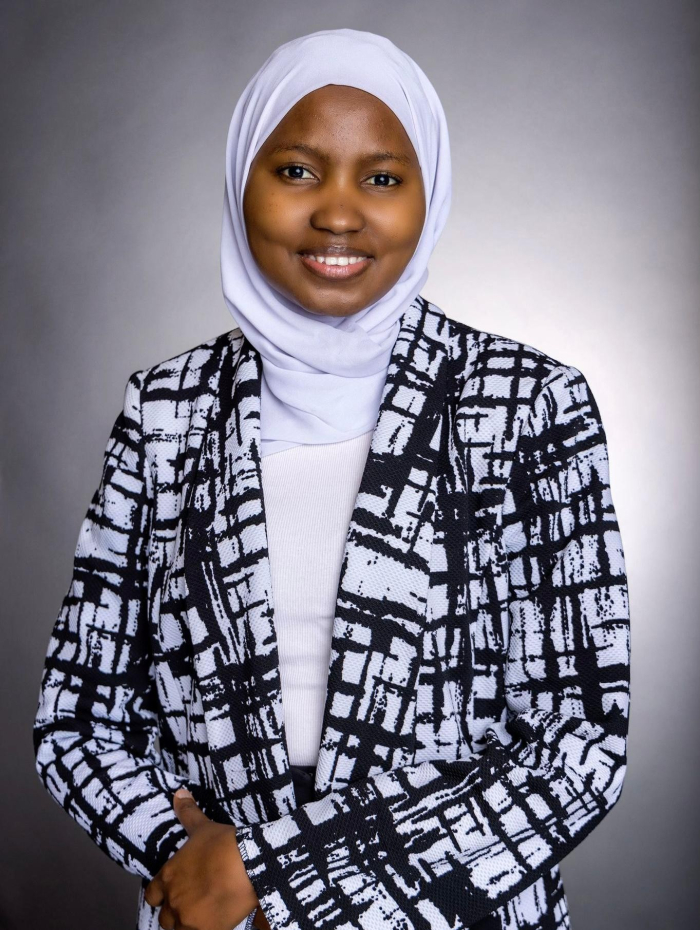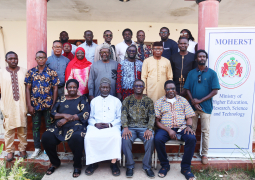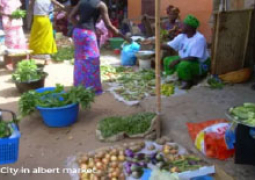
Born and raised in Soma, The Gambia, she has spent her entire life confronting an invisible enemy inside her own blood - sickle cell disease, a genetic condition that warps red blood cells into sharp, sickle shapes, blocking blood flow and starving organs of oxygen.
The pain is unbearable, the fatigue relentless, and the toll both physical and emotional unquantifiable. But Kadijatou didn’t just survive, she soared, emphasising the importance of adapting and accepting the condition as a part of life.
“When I was younger, people told my family I wouldn't live to see 22,” Kadijatou recalls. “I've been handed so many death sentences. But I believe death is inevitable with or without sickle cell. Allah gives life and takes it. It's all in His time.”
Today, she stands tall a university graduate, a master's degree holder, and a Policy Manager at the Washington Medical Commission in the United States.
Before moving to the U.S., Kadijatou was the Vice President of The Gambia's Sickle Cell Association, lending her voice to advocate for others like her.
She attended Nusrat Senior Secondary School (2014–2017), completed a degree in Political Science at the University of The Gambia (2017–2021), and graduated in 2022. That same year, she moved to the United States to pursue her master’s in Public Policy with a concentration in Health Policy at Georgia State University, graduating in 2024.
According to Dr. Lamin Makalo, Consultant Haematologist and Pediatrician at the Edward Francis Small Teaching Hospital (EFSTH), sickle cell disease causes red blood cells to become hard, sticky, and sickle-shaped. These cells clog blood vessels and deprive tissues of oxygen.
“These sickled cells block the flow of blood,” says Dr. Makalo. “And when oxygen can’t reach parts of the body, it causes intense pain, fatigue, and damage to organs.”
He stated that Sickle cell disease doesn’t just appear. It is inherited. A child must receive the faulty gene from both parents to develop the disease.
Kadijatou knows this pain intimately. “Each day is a learning point,” she says. “Some days I feel fine. Other days, the pain is so intense I can’t even move. The hardest parts are the emotional toll, hospital stays, and knowing how much my loved ones suffer with me.”
Her coping strategy is a carefully crafted routine: hydration, warmth, medication, rest, and listening to her body. But above all, she leans on faith, education, and her unshakable support system.
Her younger sister, Fanta Keita, is a nurse. Though she wasn’t born with the disease, she carries its emotional weight.
“Being her sister hurts,” Fanta says, tears welling. “Sometimes, I cry with her. The pain is unbearable not just for her, but for all of us.”
Fanta remembers missed school days, sleepless nights, and emotional breakdowns. “The whole family lived through every hospital visit, every emergency, every setback.
“But we never gave up on her. We pushed her to keep going, even when it seemed impossible,” she says. “Today, she’s thriving. Alhamdulillah. The healthcare in the U.S. made a world of difference.”
Kadijatou is not just fighting for her own life she’s fighting for a new narrative around sickle cell disease.
“There’s this belief that people with sickle cell can’t live long, can’t have children, can’t succeed,” she says. “But that’s not true. I’m living proof.”
She believes education and awareness are the most powerful weapons in this fight. Talking about sickle cell openly has allowed her to understand her condition, advocate for herself, and inspire others.
“Education is my superpower,” she smiles. “It’s the only way I can help others living with this.”
Keita’s message to others with sickle cell is one of resilience and the importance of support.
She acknowledges the challenges of the disease, but calls for the need for care and understanding from loved ones. She recognises the impact of sickle cell on various aspects of life, from relationships to career choices.
She said her family and friends are her biggest support system, providing emotional and practical assistance. She expresses gratitude for their unwavering care and understanding. The support from her doctors, nurses, and the sickle cell association also plays a crucial role in her well-being.
Dr. Makalo agrees that the tide is finally turning and that once limited to basic treatments like folic acid and painkillers, The Gambia’s sickle cell care is evolving.
Now, hydroxyurea a life-changing medication is provided free of charge, reducing pain crises and improving patients' quality of life.
“We’re no longer just offering survival,” he says. “We’re offering a chance to thrive.”
He, however, warns of the growing numbers: “In 1989, sickle cell prevalence in some Gambian regions was 0.8%. By 2023, it had more than doubled to 1.7%. We diagnose two to three new cases weekly.”
“Without action, it will keep rising and this is not just a medical issue. It’s a national issue. With genotype screening now available in as little as 10 minutes, the hospital is urging couples especially young people to test before marriage. he stated.
He called on all to show love as the lattter should not blind one from doing the right thing.
“Your decision could shape the rest of your child’s life.”
Globally, 7.74 million people were living with sickle cell disease in 2021, a staggering 41.4% increase from 2000. That same year, it claimed the lives of more than 376,000 people, including 81,100 children under five, making it the 12th leading cause of under-five mortality worldwide.
Madlen Njie, the current Vice President of The Gambia Sickle Cell Association, said raising awareness remains one of the greatest challenges.
The association, she said, provides support to warrior members financially, emotionally and physically.
“We try our best to be there for each other which is the main reason the association is formed. The disease doesn’t go well with stress, thus the reason we provide emotional support to ourselves and guidance.”
She urges society to be more lenient and stop looking at them as weaklings.
Each child of a parent with Sickle Cell Trait has a: 50% chance of inheriting the trait (HbA/HbS); No chance of inheriting the disease if the other parent has normal hemoglobin (HbA/HbA). 25% chance of inheriting sickle cell disease if both parents have the trait.
Kadijatou’s success is not just her own, it belongs to the family who held her through hospital nights, encouraged her through pain, and believed in her dreams even when the world doubted them.
Her story is a testament to what sickle cell warriors can achieve when given love, support, and a fighting chance.




